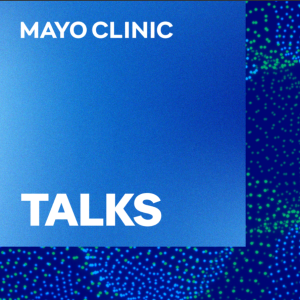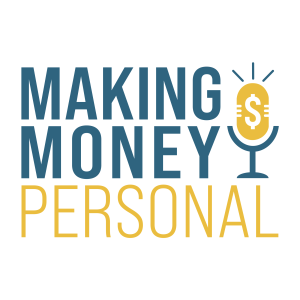If you’re with a big bank that requires you to carry a hefty balance in your checking to avoid a maintenance fee, is it time for you to move your money?
Listen to this tip to learn how switching to a credit union can save you from the struggle and annoyance of high bank fees.
Links:
- Learn more about Triangle's checking accounts with no minimum balance
- Learn about Triangle's credit union mission and core values
- Read the Reuter's article about Bank of America's excessive fees
- Read the Investopedia article about the Benefits of Using a Credit Union
- For more financial education tips and resources visit TCU University!
- Follow us on Facebook, Instagram and Twitter!
- Learn more about Triangle Credit Union
Transcript:
I was recently in a meeting and one of our branch managers mentioned there were several new account openings at her branch during the week. When branch staff asked these new members how they heard of the credit union, their answers varied. Some provided feedback that they saw us at some community events, and another responded one of their family members had referred us to them.
What was interesting is that while they had varied reasons for how they heard about us, their answer to the next question was the same. Her question was: why are you moving from your current bank to the credit union? All three answered: I’m tired of the high minimum balance requirement on my checking account. They moved their money—if you’re with a big bank that requires you to carry a hefty balance in your checking to avoid a maintenance fee, is it time for you to move your money too?
This is Money Tip Tuesday from the Making Money Personal podcast.
A minimum deposit for a checking account is not uncommon. Most financial institutions require a minimum deposit to open an account—whether that money is deposited into a savings or a checking. It’s this initial funding that establishes your account and relationship with the financial institution. According to Forbes, you usually need to make an initial deposit between $25 and $100 to open a savings or checking account. For other deposit products, such as Certificates of Deposit or Money Markets, the minimum to open those accounts is higher and varies depending upon terms.
For higher yield deposit accounts, such as Money Markets or Online Savings, the minimums are traditionally higher. The issue most consumers have with high minimums rarely involves these types of deposit products.
The frustration most people have is not about the initial minimum deposit, it’s about the required minimum balance in the checking account to avoid the monthly maintenance fee; sadly, this amount, for some big banks, has increased to unreasonable levels.
Most consumers are looking for excellent value. That’s why people bank at credit unions—typically there are fewer fees, or low fees and competitive rates for both deposit and lending products.
If you go back to our three new members, they were all facing increased minimum daily balance requirements with their checking because the balance on their regular checking, which was not high yield checking, increased to $1000. This means their checking account minimum increased to a level they weren’t comfortable with (and for some consumers, a balance that is unaffordable), which is why they decided to move their money.
So, what happens if your balance falls below $1000? The short answer is you will be hit with a monthly maintenance fee, which opens up a whole other concern.
Big banks are notorious for imposing big fees. Bank of America (BOA) was fined $250 million, earlier this month, for a series of financial violations, including junk fees.
According to Reuters, “Bank of America reaped hundreds of millions of dollars by charging multiple fees to customers who did not have enough funds in their accounts from February 2018 until February 2022, the CFPB said in a statement. Consumers could not reasonably expect or understand they would be hit with $35 fees each time the bank declined to pay a single transaction, regulators said.”
If you find yourself at the mercy of big banking fees, and you’re tired of high minimum balance requirements on your accounts or transaction fees at the teller line, it’s time to move your finances to your local credit union because, honestly, we look at banking differently.
I work for a credit union, so I became a believer a long time ago, but for those who are exploring new options, the Credit Union movement was founded on the principle of “people helping people,” not feeing our members to death!
According to Investopedia, one of the top reasons to bank at a credit union is because of lower fees, “credit unions are free to pass surplus money to members in the form of fewer fees, more services, lower interest on loans, and higher dividends on deposits.”
Fees are the cost of doing business but for financial institutions with a conscience, there are limits. For instance, most credit unions are reluctant to raise fees and before any new fees are imposed, they are scrutinized at all management levels. Triangle Credit Union eliminated five fees this year; sadly we had to raise a loan origination fee because our costs increased exponentially.
If you’re already a member of a credit union, let me say, “Well done! You’re a financial genius!” If you aren’t, you’ve probably lost $16 while listening to this money tip! Just kidding.
Seriously, I have several friends who recently moved their accounts to a local credit union because of financial safety and soundness, lower minimum balance requirements in checking, and fewer fees. So, whether you’re just starting your financial journey or a seasoned professional with a great salary, credit unions are the right move.
Have any more great tips? If so, please contact us tcupodcast@trianglecu.org. For more great tips and full episodes, subscribe to the Making Money Personal podcast, wherever you listen to podcasts and follow us on Facebook!
Many thanks to our sponsor, Triangle Credit Union, and you—our listeners!
Have a great day everyone!
More Episodes
Tips to Manage a Rent Increase - Money Tip Tuesday
 2022-05-17
2022-05-17
 102
102
Reasons to Borrow Local When you Buy Local - Money Tip Tuesday
 2022-05-10
2022-05-10
 105
105
Tips for Buying from Online Marketplaces - Money Tip Tuesday
 2022-05-03
2022-05-03
 96
96
Episode 44: Strategies for Owning and Managing Rental Properties - Angelica Resto, Property Owner & Landlord
 2022-04-28
2022-04-28
 129
129
Simple Health Habits to Save You Money - Money Tip Tuesday
 2022-04-26
2022-04-26
 104
104
Finance Options for Your New Home Purchase - Money Tip Tuesday
 2022-04-19
2022-04-19
 100
100
What Every Student Should Know About Student Loans - Money Tip Tuesday
 2022-04-12
2022-04-12
 95
95
How Do I Get Pre-Approved for My New Home? - Money Tip Tuesday
 2022-04-05
2022-04-05
 94
94
What’s a Federal Rate Hike? - Money Tip Tuesday
 2022-03-29
2022-03-29
 101
101
Episode 43: Tech Defense Against Financial Crime with Jaime Ramirez CEO of Preventor
 2022-03-24
2022-03-24
 112
112
What is a Sinking Fund? - Money Tip Tuesday
 2022-03-22
2022-03-22
 99
99
Are NFTs a Fad or the Future? - Money Tip Tuesday
 2022-03-15
2022-03-15
 112
112
Cyber Safety During Global Conflicts - Money Tip Tuesday
 2022-03-08
2022-03-08
 104
104
March: The Mad Money Month - Money Tip Tuesday
 2022-03-01
2022-03-01
 113
113
Reasons to Use Your Identity Protection Services - Money Tip Tuesday
 2022-02-22
2022-02-22
 114
114
Episode 42: Money Matters for Couples
 2022-02-17
2022-02-17
 170
170
Fraud Prevention: Protect Your Accounts with Multi Factor Authentication - Money Tip Tuesday
 2022-02-15
2022-02-15
 101
101
Top Scholarship Apps to Try Out - Money Tip Tuesday
 2022-02-08
2022-02-08
 109
109
Top Money Management Challenges to Overcome - Money Tip Tuesday
 2022-02-01
2022-02-01
 109
109
The Pros and Cons of Working a Side Gig - Money Tip Tuesday
 2022-01-25
2022-01-25
 117
117
Create your
podcast in
minutes
- Full-featured podcast site
- Unlimited storage and bandwidth
- Comprehensive podcast stats
- Distribute to Apple Podcasts, Spotify, and more
- Make money with your podcast
It is Free
You may also like

Mayo Clinic Talks


The Saad Truth with Dr. Saad


Positive Thinking Mind


The Jordan B. Peterson Podcast


The Mel Robbins Podcast


- Privacy Policy
- Cookie Policy
- Terms of Use
- Consent Preferences
- Copyright © 2015-2024 Podbean.com




 iOS
iOS Android
Android